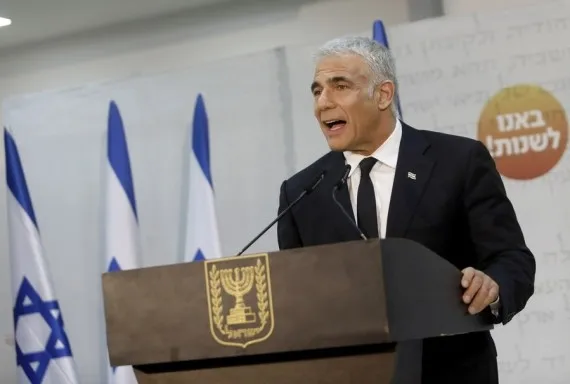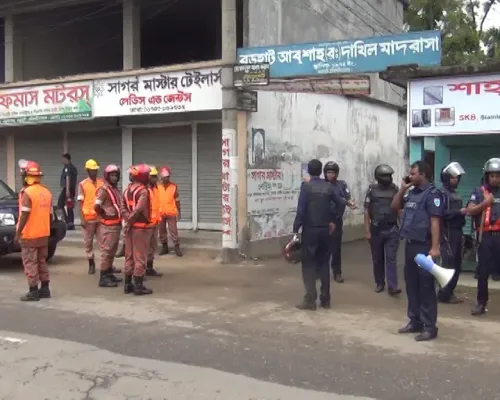Is Israel's Cabinet Approval of Gaza City Takeover a Major Mistake?

Synopsis
Key Takeaways
- The Israeli cabinet's approval of Gaza City takeover is met with fierce opposition.
- Critics argue it could lead to more casualties among hostages and soldiers.
- Demands from Israel include the disarmament of Hamas and the return of all hostages.
- Concerns about the financial burden on Israeli taxpayers are highlighted.
- Humanitarian aid to civilians is part of the government's strategy.
Jerusalem, Aug 8 (NationPress) Opposition figures have voiced strong disapproval regarding the Israeli cabinet's endorsement of a strategy to occupy Gaza City, labeling it a catastrophe that could precipitate further calamities and potentially lead to the loss of Israeli hostages and military personnel.
Opposition leader Yair Lapid characterized the cabinet's resolution as “a catastrophe that will lead to additional catastrophes.” He accused Israel's National Security Minister Itamar Ben Gvir and Finance Minister Bezalel Smotrich of having coerced Prime Minister Benjamin Netanyahu into a decision that might impose a financial burden of tens of billions on Israeli taxpayers and could culminate in a political crisis.
“Contrary to the advice from military and security officials, and failing to consider the fatigue and depletion of our combat forces, Ben Gvir and Smotrich maneuvered Netanyahu into a course of action that will take months, risk the lives of hostages, lead to the deaths of numerous soldiers, and ultimately cost taxpayers tens of billions. This is precisely what Hamas desired: to ensnare Israel in a situation devoid of clear objectives, leading to a futile occupation,” Lapid expressed on X.
Yisrael Beytenu party leader and former Defence Minister Avigdor Liberman noted that the cabinet’s sanctioning of Gaza City’s takeover, despite objections from senior defence officials, “demonstrates that crucial life-and-death decisions are made without regard for security concerns or the war's goals,” according to 'The Times of Israel.' He claimed that Netanyahu is once again “sacrificing the safety of Israeli citizens for the preservation of his political position.”
Yair Golan, head of the Democrats party, remarked that this choice indicates that “more hostages will be left to die.” He described it as typical of Netanyahu, asserting, “He is weak, easily influenced, lacks decisive capability, and is unable to reconcile the professional advice with the group of zealots steering the government.”
He branded the decision a “disaster for generations,” as reported by 'The Times of Israel,' citing Army Radio. “Our sons and grandsons will still patrol the streets of Gaza, we will incur hundreds of billions in expenses over the years, all for the sake of political survival and messianic aspirations,” he questioned the government’s strategy for demilitarizing the Gaza Strip.
This reaction from opposition leaders follows the announcement from PM Benjamin Netanyahu's office on Friday that the security cabinet had approved a plan for the Israel Defence Forces (IDF) to take control of Gaza City.
In a statement, Netanyahu's office declared that Israel would extend humanitarian assistance to civilians outside combat zones as part of the cabinet's decision to support Netanyahu's “strategy to defeat Hamas.”
Most cabinet members endorsed a set of five principles that Israel will demand in exchange for concluding the conflict with Hamas, as stated by Netanyahu's office. These demands encompass: the disarmament of Hamas, the return of all 50 remaining hostages—20 of whom are believed to still be alive—the demilitarization of the Gaza Strip, Israeli security oversight of the Gaza Strip, and the establishment of a civilian government not affiliated with Hamas or the Palestinian Authority.
According to Netanyahu's office, the majority of ministers felt that the alternative proposal presented to the security cabinet would not ensure Hamas's defeat or the return of the hostages. Gaza City constitutes part of the 25% of the Strip that the IDF has yet to capture, along with several refugee camps in central Gaza.









